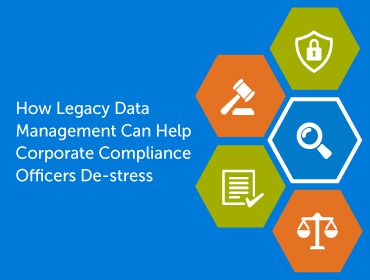
The role of healthcare compliance is complex and constantly evolving. A survey showed 69% of 240 Corporate Compliance Officers (CCOs) surveyed (from multiple industries) noted the pace of changing regulations is their top stressor. A recurring comment in the survey was that their departments had “no permission to fail.”
In healthcare, Federal and state laws constantly change and the interpretation of those laws and regulations changes too. The healthcare compliance team is charged with reviewing and updating the processes, policies, and procedures of the organization. This also includes making sure updated training is provided to employees.
There is a lot to do to keep an organization compliant. To start, every healthcare organization and provider needs a compliance program and often a large team to deliver and enforce it. For some larger healthcare organizations, the compliance department may include hundreds of individuals whose job it is, among other things, to conduct annual audits and assessments to ensure the organization meets all standards for technical, physical, and administrative safeguards.
The compliance team is constantly monitoring, tracking, and training employees as well as updating policies and procedures to keep the entire organization moving forward. There are many areas to keep track of to avoid the pitfalls of violating the Health Insurance Portability and Accountability Act (HIPAA).
The Top 10 HIPAA violations healthcare compliance teams are working to prevent:
- Snooping on Healthcare Records
- Failure to Perform an Organization-Wide Risk Analysis
- Failure to Manage Security Risks/Lack of Risk Management Process
- Denying Patients’ Access to Health Records/Exceeding Timescale for Providing Access
- Failure to Enter into a HIPAA-Compliant Business Associate Agreement (BAA)
- Insufficient Access Controls to electronic Protected Health Information (ePHI)
- Failure to Use Encryption or an Equivalent Measure to Safeguard ePHI on Portable Devices
- Exceeding the 60-Day Deadline for Issuing Breach Notifications
- Impermissible Disclosures of Protected Health Information
- Improper Disposal of PHI
Unfortunately, sometimes HIPAA violations continue for many months, or even years, before they are discovered. When this happens, the penalties and the long-term problems can be severe.
A solid legacy data management program helps healthcare providers ensure HIPAA compliance while avoiding costly and reputation-damaging violations.
It is critical to have a legacy data management program in place because data silos across a health care system leave the organization vulnerable to cyberattacks, data privacy incidents and the inability to meet new regulations such as the 21st Century Cures Act.
Check out the article Four Ways to Streamline Legacy Data Management to see how any organization, large or small, can implement legacy data management at their facility. Harmony Healthcare IT’s active archive solution, HealthData Archiver® supports data consolidation, decreasing costs, ensuring compliance, increasing security, enhancing efficiency, and simplifying reporting. These benefits and more are a helpful tool in the compliance team’s toolbox.
Top 5 compliance-oriented challenges that can be mitigated with the cloud-hosted HealthData Archiver® solution:
- Search Ease – Legacy data is stored in a secure and searchable active archive.
- Record Retention Compliance – Legacy records are stored in compliance with regulations at all levels – state, federal and by specialty.
- Security – HITRUST CSF®-certified security controls protect historical records from vulnerable applications and infrastructure.
- Audit Trails – Rights and activities can be restricted and audited by user, role, group and data domain/source. With third-party auditing integration, unusual activity may be monitored to prevent internal threats.
- Break the Glass – Protects the privacy and security of all medical records – including those of high-profile patients.
For more information about HealthData Archiver®™ and how its suite of data management solutions support Chief Compliance Officers, check out this blog. In addition, this podcast provides helpful information about legacy data management for compliance teams.
Harmony Healthcare IT supports the efforts off CCOs who need a data management partner that checks all the boxes. Our team has been consistently ranked as the #1 data extraction, migration, and archival healthcare IT company according to Black Book Market Research for four years (2019-2022) as well as ranked #1 in the 2020 Best in KLAS Software & Services Report as a Category Leader in Data Archiving.
Does your organization need to evaluate your long-term medical, employee and business record compliance program?






